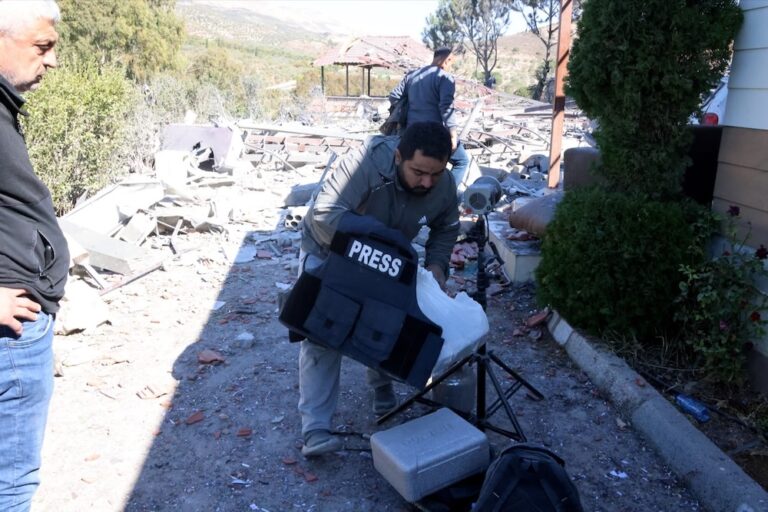(RSF/IFEX) – In a letter to Lebanese Information Minister Michel Samaha, RSF branded a 48-hour ban on news and political broadcasts on New Television (NTV), an independent television station, as “harassment.” The ban began on 16 December 2003 at 3:00 p.m. (local time). “The Lebanese authorities’ attitude toward the media, in particular broadcasters, is completely […]
(RSF/IFEX) – In a letter to Lebanese Information Minister Michel Samaha, RSF branded a 48-hour ban on news and political broadcasts on New Television (NTV), an independent television station, as “harassment.” The ban began on 16 December 2003 at 3:00 p.m. (local time).
“The Lebanese authorities’ attitude toward the media, in particular broadcasters, is completely unacceptable. What type of state carries out harassment campaigns against certain media outlets, going so far as to slap such an absurd ban on news programmes?” asked RSF Secretary-General Robert Ménard.
“Political, legal and governmental interference in the media have increased since the indefinite closure of Murr TV last year, leaving Lebanon as a pitiful example of press freedom for Arab countries. In addition, these obstacles have a disastrous impact on the work of journalists, who feel they are being increasingly watched and threatened by the authorities,” Ménard said.
The Information Ministry accused NTV of breaking the broadcast media law by airing “subjective” news about the resignation of one of its announcers, Dalia Ahmad. On 12 December, the television station suggested that the head of Syrian military intelligence in Lebanon, General Roustom Ghazalé, and the director general of the Lebanese state security service, General Jamil Sayyed, were responsible for the journalist being refused work and residence permits. Ahmad is a Sudanese national.
On 6 December, NTV owner Tahsin Khayat was arrested by military police for “suspected links with Israel” and had a number of documents seized. He was released 24 hours later. Khayat accused the intelligence services of being behind his arrest.
The harassment campaign against the station, known for its critical stance toward the government, could be linked to NTV’s exhaustive coverage of a criminal case involving Al-Medina Bank, in which several Lebanese political figures have been implicated.


